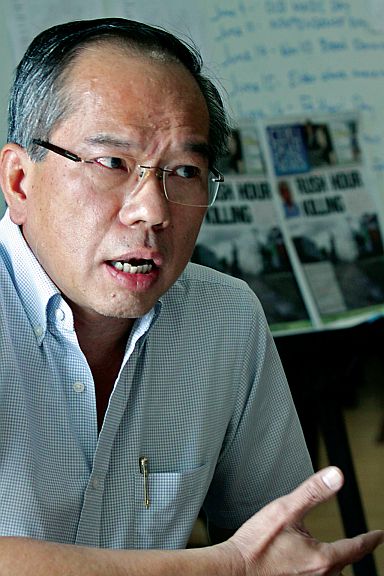
TAN
Biz chiefs laud PH’s 12-notch jump in Index of Economic Freedom survey
The Duterte administration is encouraged to improve policies to facilitate the ease of doing business and create efficiency in government bureaucracy.
This is to sustain the economic gains in the country as shown in the increase in rank of the Philippines in the 2017 Index of Economic Freedom (IEF) report.
“When this is achieved, our ranking (in the IEF) will (further) improve,” said Philip Tan, Mandaue Chamber of Commerce and Industry (MCCI) past president, as he welcomed the country’s performance in the 2017 IEF, where it jumped to 58th place this year from 70th in 2016.
The IEF, an annual global survey, conducted by Washington-based conservative political think tank, The Heritage Foundation, showed that the country jumped 12 notches from its 70th position last year because of a higher score of 65.6, up 2.5 points from last year.
The survey also involved 186 countries.
In a statement on Sunday, published on the Inquirer, the Philippine government’s Investor Relations Office (IRO) claimed that the Duterte administration’s 10-point socioeconomic agenda, ultimately aimed at slashing the poverty incidence to 14 percent by 2022 from 21.6 percent in 2015, were expected to propel the country’s economic ranking further in the medium term.
Investments coming
Tan said he agreed with the result of the research, adding that some “truth” could be felt across industries.
“Investments are coming in and this shows there is still faith from the business sector, whether in internal or external factors,” he said in a phone interview.
He also lauded the country’s performance despite a transition in government in the middle of last year, saying that the gains in the economy should also be attributed to effective polices from within the previous administration.
Momentum there
Glenn Soco, MCCI president, also welcomed the 12-notch jump in the IEF rankings, attributing this to the present administration’s economic thrusts.
“As I have always said, the momentum is there and it is only a matter of capitalizing on the opportunity for our country to grow faster,” said Soco told Cebu Daily News in a text message.
“We in business are confident that we can achieve more given the initiatives of the present administration and the positive economic indicators,” he said.
Fiscal policy successes
The Heritage Foundation, as quoted by the IRO, attributed the country’s higher score and ranking in the 2017 IEF to “notable successes in fiscal policy, government spending and monetary stability.”
Mandaue Chamber of Commerce and Industry president Glenn Anthony Soco
According to the IRO, The Heritage Foundation’s IEF measures economic freedom based on 12 quantitative and qualitative factor in four broad categories or pillars, which included government size, open markets, regulatory efficiency, and rule of law.
“The Philippines has achieved notable economic expansion, driven by the economy’s strong export performance and inflows of remittances,” the think tank said.
Considered to be among the fastest in the region, the Philippine economy expanded by 6.8 percent in 2016 as both public and private consumption and investment grew amid solid fundamentals.
In 2016, cash sent home through banks by Filipinos living and working abroad hit a record $26.9 billion, up 5 percent from $25.607 billion in 2015 to surpass the government’s 4-percent growth target.
Legislative reforms
The Heritage Foundation said the Philippines is also pursuing legislative reforms to enhance the overall entrepreneurial environment and develop a stronger private sector needed to generate broader-based job growth.
The IEF is “an annual index and ranking created by The Heritage Foundation and The Wall Street Journal in 1995 to measure the degree of economic freedom in the world’s nations.”